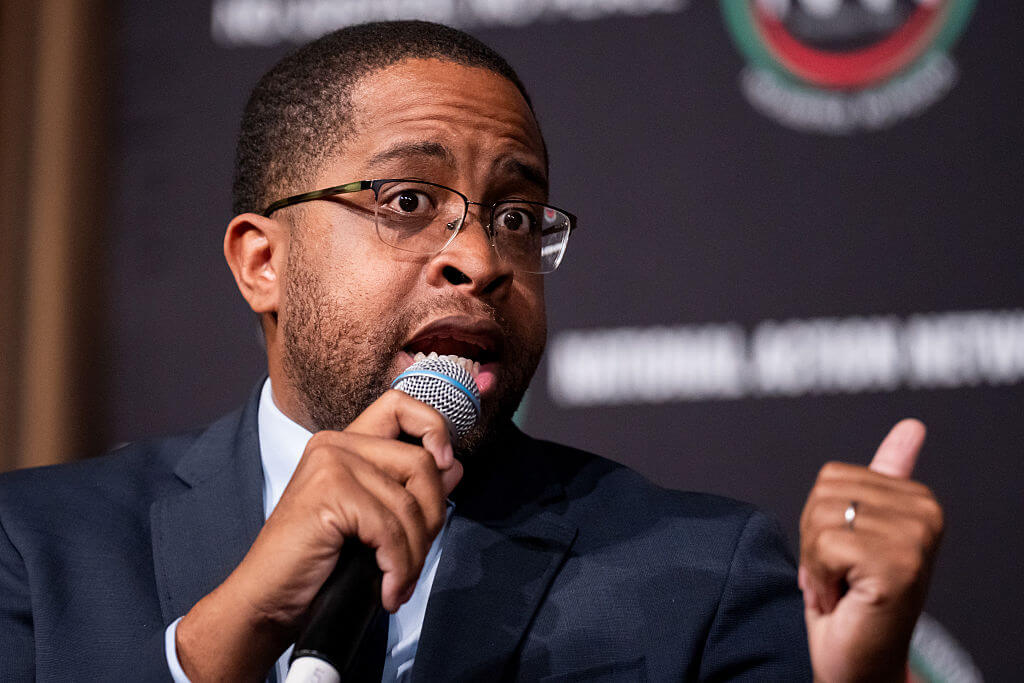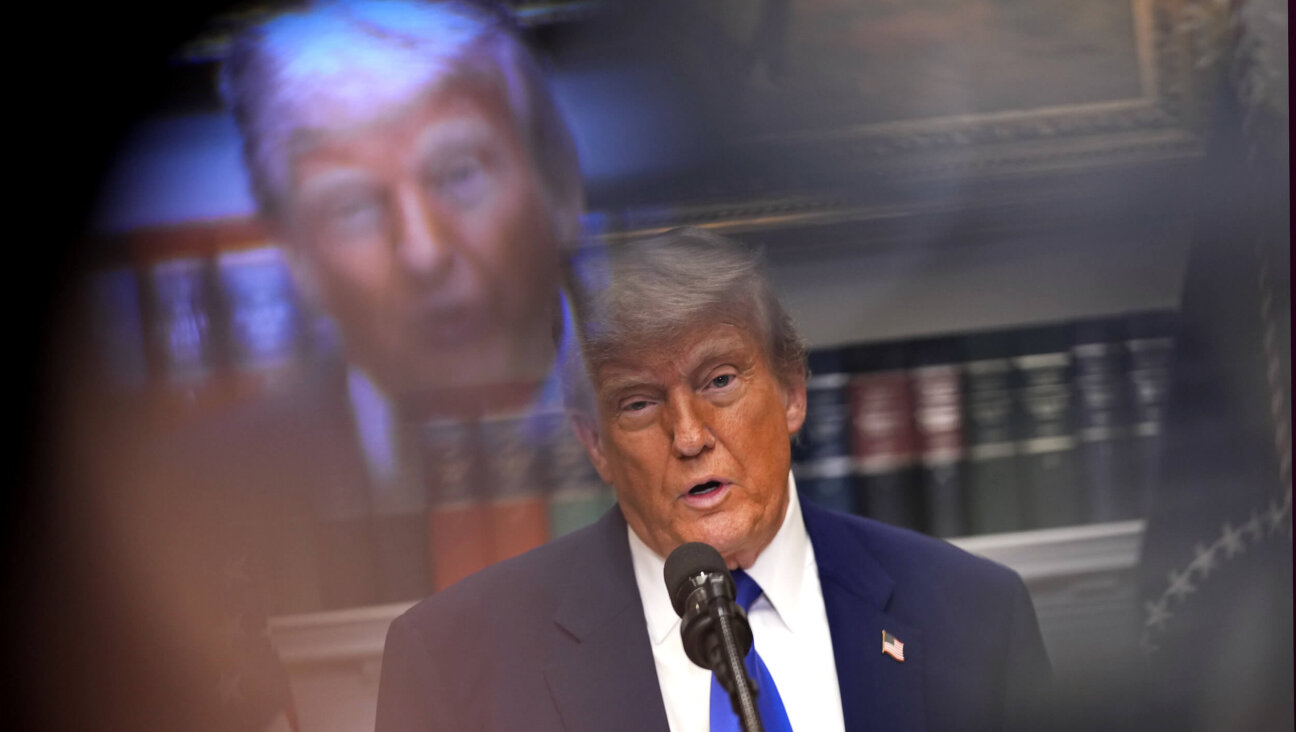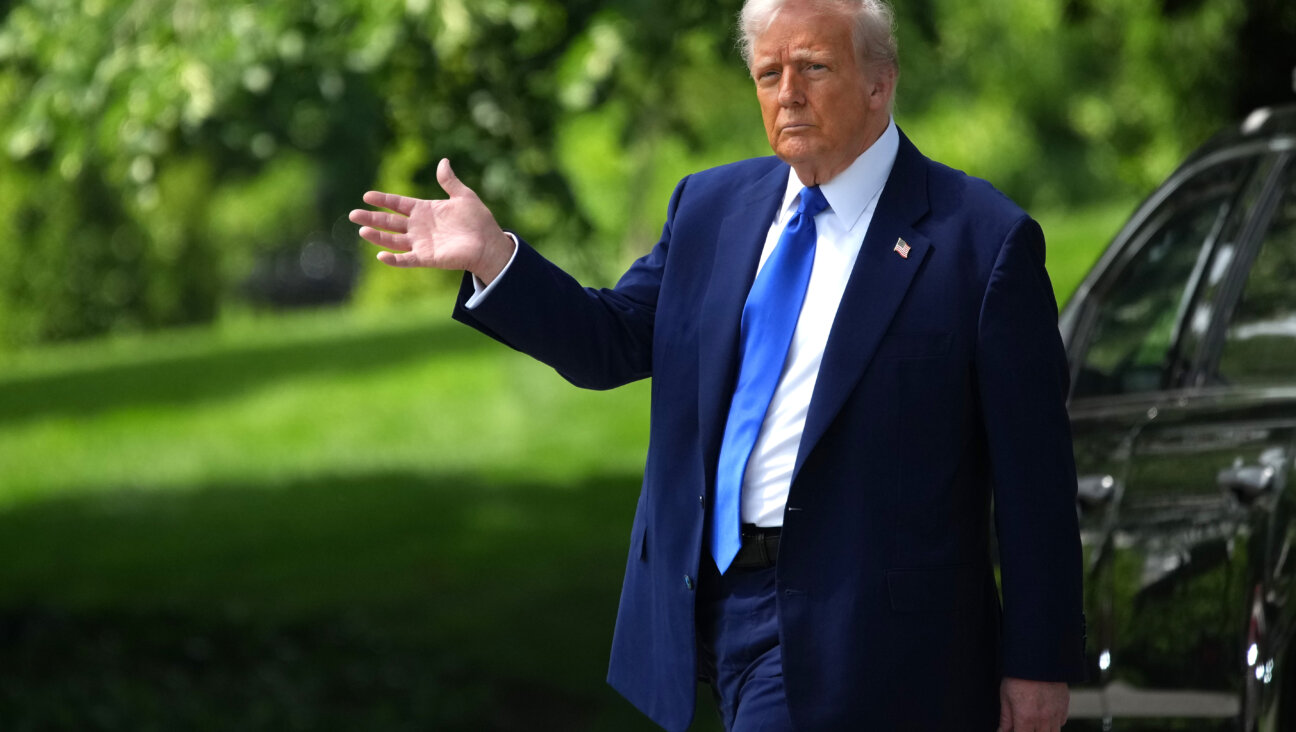Hyman Bookbinder, ‘Passionate Moderate,’ Dies at 95

Image by COURTESY OF AMERICAN JEWISH COMMITTEE
Hyman Bookbinder, the legendary longtime Washington representative of the American Jewish Committee who died July 21, was the most passionate moderate I have ever known. Fair and intense, he was fierce in his convictions, but equally committed to civility and decency.

Consensus Builder: Hyman Bookbinder could disagree without being disagreeable. Image by COURTESY OF AMERICAN JEWISH COMMITTEE
I first met Bookie, who was 95 at the time of his death, when I came to work on the President’s Commission on the Holocaust during the presidency of Jimmy Carter. Elie Wiesel had been appointed chairman of the commission, and Rabbi Irving “Yitz” Greenberg was the commission’s director. I served in Washington as deputy director. None of us had had any Washington experience then. But Bookie served as a masterful tutor, schooling us in the ways of the nation’s capital and in its protocols of both public life and Jewish life. He rolled his eyes as we made rookie mistakes, but never embarrassed us and never lost faith that we could learn.
During this era, the AJC had assembled the most impressive staff of Jewish professionals, many of them pioneers in their respective fields. Bookie, whose contacts were legendary, was the AJC’s face in Washington; Senators and congressmen were his personal friends; he appeared routinely on television and talk radio, writing for The Washington Post and The New York Times. The walls of his office were covered with pictures of national and international leaders, warmly inscribed to “My friend Bookie” in their own handwritings.
The “go to” guy on Jewish affairs, he was more influential solving problems behind the scenes than in his significant public contributions. He did not like to brag, and he took pride in the achievements of others. Bookie pressed his organization to make sure that Jews were using their influence creatively and compassionately, tilting toward the liberal side of the debate.
This tilt notwithstanding, Bookie worked with all sorts of coalitions on the issues that mattered most. Civil rights was central in those days, and he was instrumental in sustaining the alliance between Jews and African Americans in Washington, which remained strong, even as it was fracturing on the streets of New York, Detroit and Los Angeles. He juggled another coalition for the cause of Soviet Jewry and yet another in support of Israel.
Before coming to the AJC, Bookie served in the Kennedy and Johnson administrations, where he played an important role in the War on Poverty and in the creation of the Great Society. Before that, he worked for the AFL-CIO and for the Amalgamated Clothing Workers of America, once the most Jewish of all unions. His ties to Labor were deep and personal. Drawn to Jewish communal service in the aftermath of Israel’s 1967 Six Day War, Bookie used his labor and government connections wisely. He had an important back channel to the Carter administration, as Walter Mondale, Carter’s vice president, was both an admirer and a personal friend.
I saw Bookie’s extraordinary negotiation abilities up close at the President’s Commission on the Holocaust. There, he played a key role in bridging the divide between survivors of the Holocaust who wanted the United States Holocaust Memorial Museum to be exclusively Jewish and those who wanted to maintain the singularity of the Jewish experience while including other ethnic groups that perceived themselves as victims of Nazism — sometimes, even if their own record with regard to the Jews was quite questionable. Bookie saw the respectful and truthful inclusion of these ethnic groups in the museum as essential if the museum was to be located in Washington and not New York. He intuitively understood how to mediate and compromise without sacrificing principle, a concept that sounds quite strange in today’s polarized capital. He could disagree without being disagreeable, and his disagreements were issue oriented and never personal.
Bookie was not without critics. One nasty comment heard from a rival leader of the young and uncompromising, more militant generation was that he had “perpetual knee pads,” which roughly translates as he sought compromise rather than confrontation. In actuality, he could find a middle ground so that both sides could come away with something. In our era, such voices of moderation are few and far between, and more often than not, both sides come away with nothing as a result.
Bookie married twice, both times happily. His first wife died after their long marriage. Later, the couple’s longtime friend Ida Levick, who herself had been widowed, became Bookie’s companion and later his loving wife. They shared political passions and a love of Yiddish, a language that also linked him to survivors of the Holocaust. Bookie read many papers each day and watched all the Sunday morning shows. He was a political junkie who did what he loved and loved what he did.
I grew to respect and revere the man, to cherish him as a mentor and a friend, a source of wisdom and sanguine advice. I am not alone. Throughout the corridors of government and in the inner reaches of many Jewish organizations, there are men and women of my generation who are proud to claim Bookie as a mentor, a friend, a model and a conscience.
Contact Michael Berenbaum at [email protected]
























